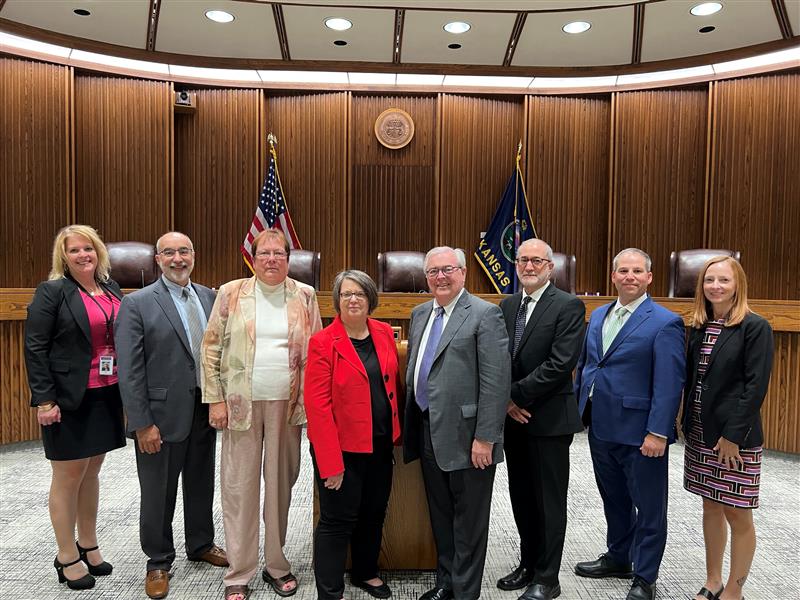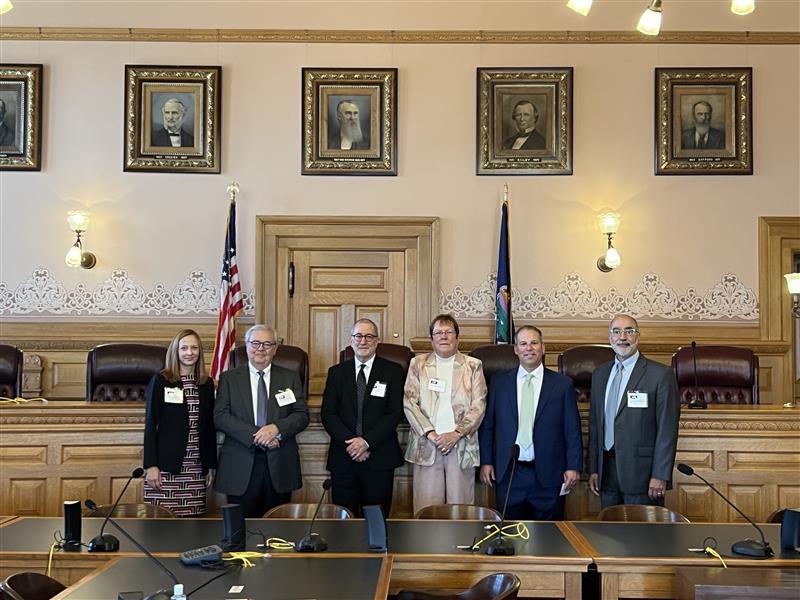SJI received 14 grant applications requesting a total of $2,507,926 for the 4th quarter of FY 2023. The Board met on September 18, 2023, at the Supreme Court of Kansas to make decisions on those applications.
During its meeting, the Board awarded 5 Strategic Initiatives Grants: 1) the Legal Innovation and Technology Lab (the Lab) at Suffolk University Law School to create a national document assembly and e-filing service for use by state courts and legal non-profit organizations. The initiative will reduce the complexity faced by self-represented litigants (SRLs) and increase access to justice by providing the necessary infrastructure and developer support. Such a service and support will enable partner jurisdictions to create and operate open-source online guided interviews with e-filing integration; 2) the National Center for State Courts (NCSC) to build a network of courts that demonstrate exemplary use of data to provide significantly better outcomes for families and courts; 3) Policy Research Associates for a multi-phase project to determine the scope, mechanisms, and effectiveness of strategies and approaches that state civil and criminal courts are using to provide court-based non-legal aid to help people with unmet behavioral health needs better navigate the court system, and have their needs identified and addressed; 4) The NCSC, in partnership with the Conference of Chief Justices (CCJ) and Conference of State Court Administrators (COSCA) to launch the National Task Force on Fines, Fees, and Pretrial Practices 2.0; and 5) a special award made from SJI’s Request for Applications process on fines and fees, which will enable the 19th Judicial District Court of Louisiana to work with the East Baton Rouge Parish’s Criminal Justice Coordinating Council and the Justice Management Institute to develop and implement a high-functioning pretrial services agency.
Five (5) Technical Assistance Grant applications were awarded: 1) the Wyoming Supreme Court to contract with the NCSC to assist the Judicial Branch in its effort to launch a pilot navigator program in the Seventh Judicial District (Casper, Natrona County), and to implement meaningful self-help delivery in the operation of the courts; 2) Superior Court of Santa Barbara, California to to engage an expert consultant to assist in developing a strategic plan and direction for the Court; 3) The National Immigrant Women’s Advocacy Project at the American University/Washington College of Law, working in partnership with the National Council of Juvenile and Family Court Judges to further develop the National Judicial Network: Forum on Human Trafficking and Immigration in State Courts; 4) the New Hampshire Administrative Office of the Courts review court operations and priorities, identify opportunities for improvement, and support the role of the Supreme Court as regulator of the legal profession; and 5) the Judiciary of Guam seeks support to contract with the NCSC to assist in its effort to manage and facilitate a strategic planning process to guide the delivery of justice to Guam.
Two (2) Curriculum Adaptation and Training Grants were awarded: 1) support to educate judges and other stakeholders during the National Interdisciplinary Cannabis Symposium, held from December 1st-3rd, 2023, in Portland, Oregon; and 2) the American Judges Association for judicial educational programming during the 2024 mid-year1 and annual meetings. The goal is to educate participants to strategies most recently identified as best practices to improve fair and equal access to civil and criminal justice.
The next deadline for grant applications is November 1, 2023 (FY 2024, 1st quarter).



